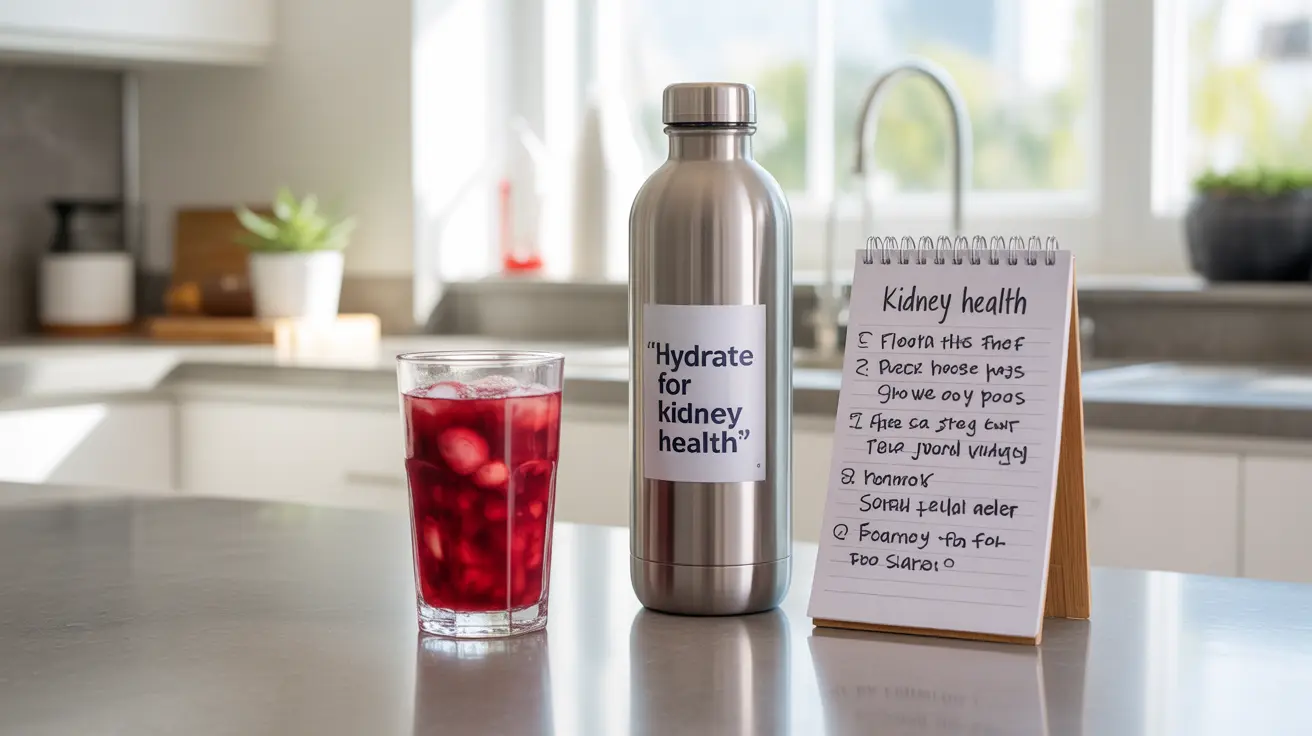Understanding the relationship between cranberry juice consumption and kidney health is crucial for anyone concerned about kidney stones or general kidney wellness. While cranberry juice has long been associated with urinary tract health, its impact on kidney stones requires careful consideration to ensure you're drinking the right amount for your specific situation.
This comprehensive guide will explore the optimal cranberry juice intake for kidney health, potential risks, and alternative approaches to maintaining kidney wellness. Whether you have a history of kidney stones or are simply being proactive about prevention, understanding these factors can help you make informed decisions about your cranberry juice consumption.
The Connection Between Cranberry Juice and Kidney Health
Cranberry juice contains compounds that can affect kidney stone formation in different ways. While it may help prevent certain types of urinary tract infections, its high oxalate content requires careful consideration when it comes to kidney stone risk.
Understanding Oxalate Content
Cranberry juice contains significant levels of oxalates, which can contribute to the formation of calcium oxalate stones - the most common type of kidney stones. This doesn't mean you need to avoid cranberry juice entirely, but moderation is key, especially if you have a history of kidney stones.
Safe Consumption Guidelines
For those concerned about kidney health, limiting cranberry juice intake to 8-16 ounces (236-473 ml) per day is generally considered safe. However, individuals with a history of calcium oxalate stones may need to further restrict their consumption or consult with a healthcare provider for personalized recommendations.
Factors to Consider When Drinking Cranberry Juice
- Choose 100% pure cranberry juice rather than cranberry cocktails
- Dilute pure cranberry juice with water to reduce oxalate concentration
- Time consumption throughout the day rather than drinking all at once
- Stay well-hydrated with plain water throughout the day
Alternative Beverages for Kidney Health
Several other beverages can support kidney health while potentially carrying fewer risks than cranberry juice:
- Lemon water
- Coconut water
- Green tea (in moderation)
- Plain water
- Citrus-based drinks (except grapefruit juice)
Comprehensive Kidney Stone Prevention Strategy
Managing cranberry juice intake is just one aspect of kidney stone prevention. A comprehensive approach should include:
- Maintaining proper hydration
- Following a balanced diet
- Limiting sodium intake
- Managing calcium consumption appropriately
- Regular exercise
- Monitoring other oxalate-rich foods
Frequently Asked Questions
How much cranberry juice is safe to drink if I have a history of kidney stones?
If you have a history of kidney stones, limit cranberry juice to no more than 8 ounces (236 ml) per day. Some individuals may need to avoid it completely, depending on their specific type of kidney stones and medical history. Always consult with your healthcare provider for personalized recommendations.
Can drinking cranberry juice increase the risk of calcium oxalate kidney stones?
Yes, excessive cranberry juice consumption can increase the risk of calcium oxalate kidney stones due to its high oxalate content. This risk is particularly significant for individuals who have previously experienced calcium oxalate stones.
What are the best juice alternatives to cranberry juice for kidney stone prevention?
Lemon juice diluted in water, coconut water, and sugar-free citrus beverages (except grapefruit) are excellent alternatives. These options can help maintain good kidney health while potentially reducing kidney stone risk.
Does cranberry juice help prevent all types of kidney stones or only certain kinds?
Cranberry juice may help prevent certain types of kidney stones, particularly uric acid stones, due to its ability to acidify urine. However, it may increase the risk of calcium oxalate stones, which are the most common type.
What lifestyle changes can reduce the risk of kidney stones besides limiting cranberry juice?
Key lifestyle changes include drinking plenty of water (at least 2-3 liters daily), reducing sodium intake, maintaining a healthy weight, limiting animal protein consumption, and getting adequate exercise. Additionally, following a balanced diet rich in fruits and vegetables while moderating oxalate-rich foods can help prevent kidney stones.




